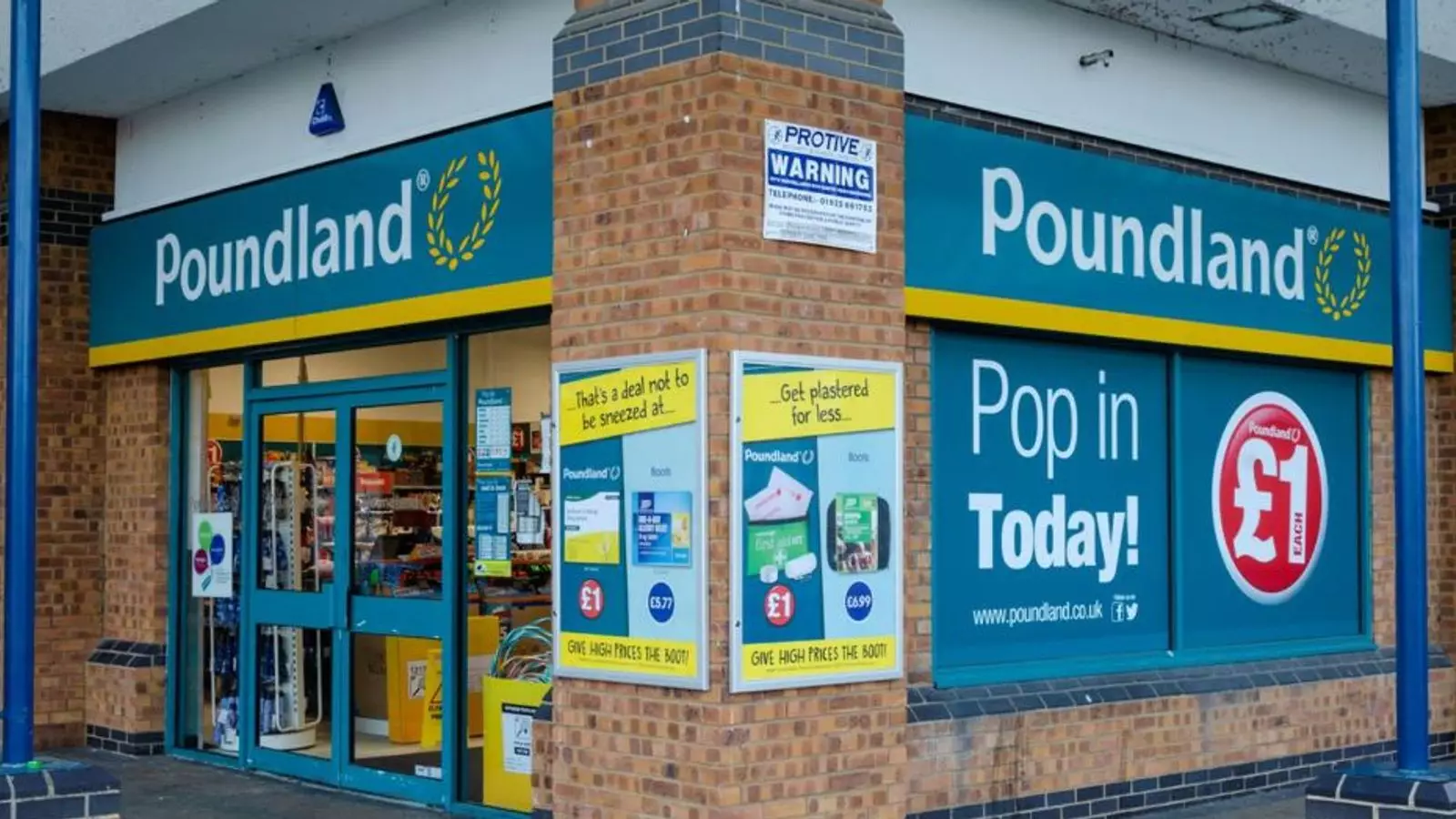In the ever-evolving landscape of British retail, Poundland—a prominent discount chain—finds itself grappling with significant challenges that threaten its long-term viability. Under the ownership of Pepco Group since 2016, Poundland has recently faced a troubling downward trend in sales, prompting urgent discussions about potential restructuring measures. The decision to recruit AlixPartners, a consulting firm with expertise in corporate recovery, highlights the gravity of the situation. With a notable slump of 7.3% in like-for-like sales during the crucial Christmas trading season, the call for strategic intervention has never been more pronounced.
As the retail industry in the UK adapts to shifting consumer behavior and economic pressures, Poundland must confront a more challenging market than ever before. Competing against rivals such as Home Bargains and B&M, as well as major supermarkets, the chain holds its ground with roughly 825 stores and 18,000 employees. However, the landscape is changing, and so are consumer expectations.
As per recent assessments, the urgency for Poundland to execute a comprehensive strategic overhaul cannot be overstated. Reports suggest that Pepco Group is considering a range of drastic measures including restructuring plans and possibly company voluntary arrangements. While significant store closures could be on the table, it remains a contentious issue that would directly impact many employees and the communities those stores serve.
The immediate priority for Pepco appears to center on cash flow improvements and customer engagement. Yet, the looming questions regarding ownership and potential divestiture linger in the air, creating an atmosphere of uncertainty that could further alienate loyal customers. How does a long-standing discount retailer pivot to reclaim its market position while managing the expectations of both investors and consumers?
The competitive environment in discount retail has grown fiercer, with numerous stakeholders capturing market share. As consumers become increasingly price-sensitive, the need to enhance the customer proposition becomes paramount. Pepco Group’s strategy to augment the range of fast-moving consumer goods (FMCG) and general merchandise at Poundland’s iconic £1 price point could reinvigorate interest among bargain hunters. However, this requires not only innovative product placement but also a more robust marketing approach to reach potential customers who may presently be swayed by alternative stores.
Poundland’s current trials starkly contrast with the successes enjoyed by Pepco and Dealz, both of which have reported strong sales growth. This discrepancy raises important questions about internal operational efficiencies and market positioning. What can Poundland learn from its sister brands to reverse its fortunes? Importing successful methodologies while adapting them to fit the unique identity of Poundland could offer a pathway forward.
The financial statements indicate an urgent need for a scrupulous review of operations and expenditures within Poundland. The assessment of cost structures and enhancing competitive positioning will likely be pivotal in defining the retailer’s future. Implementing cost-saving initiatives while avoiding quality compromises will be crucial for regaining customer trust and loyalty.
Moreover, leadership under CEO Stephan Borchert may offer insights into the strategies needed for regeneration. His openness to evaluate “every strategic option” points toward a potential for bold moves, but these must be executed in a calculated manner to mitigate risks associated with sweeping changes. The forthcoming capital markets day in Poland, where formal plans are anticipated, may shed further light on the roadmap ahead.
Poundland’s struggles are emblematic of a broader crisis in brick-and-mortar retail, characterized by shifting consumer preferences and market competition. While strategic assistance from AlixPartners paves the way for potential recovery, the path forward must be navigated with caution. Balancing operational realities with innovative customer engagement strategies will be essential for revitalizing the brand. If successful, Poundland could evolve from a crisis-ridden chain to a resilient performer within the competitive retail sector once more. As we look ahead, the stakes are high—it is a make-or-break moment for one of Britain’s cherished discount retailers.

